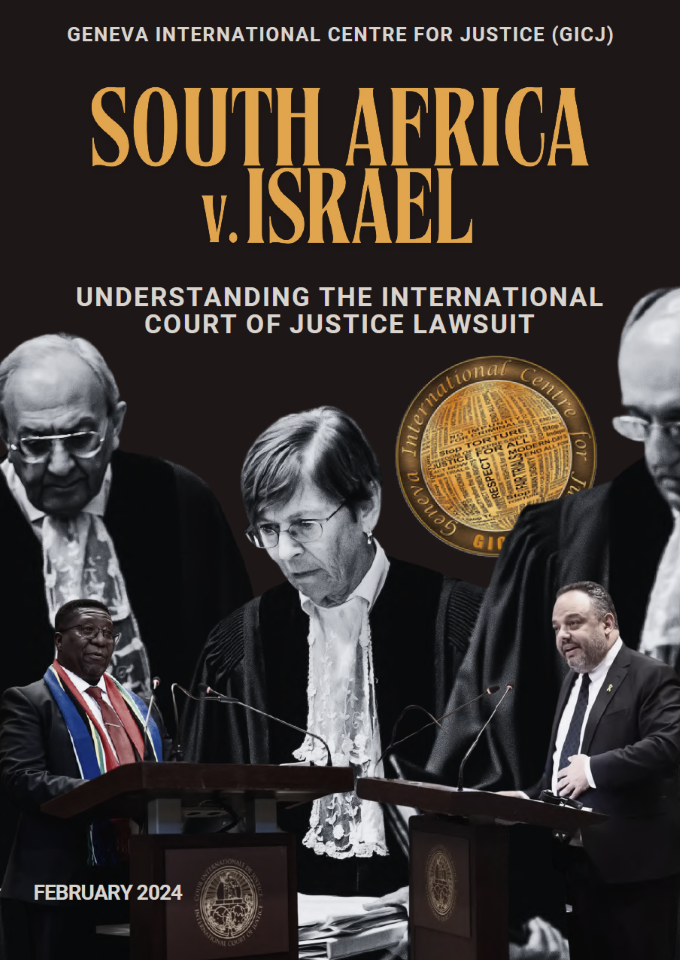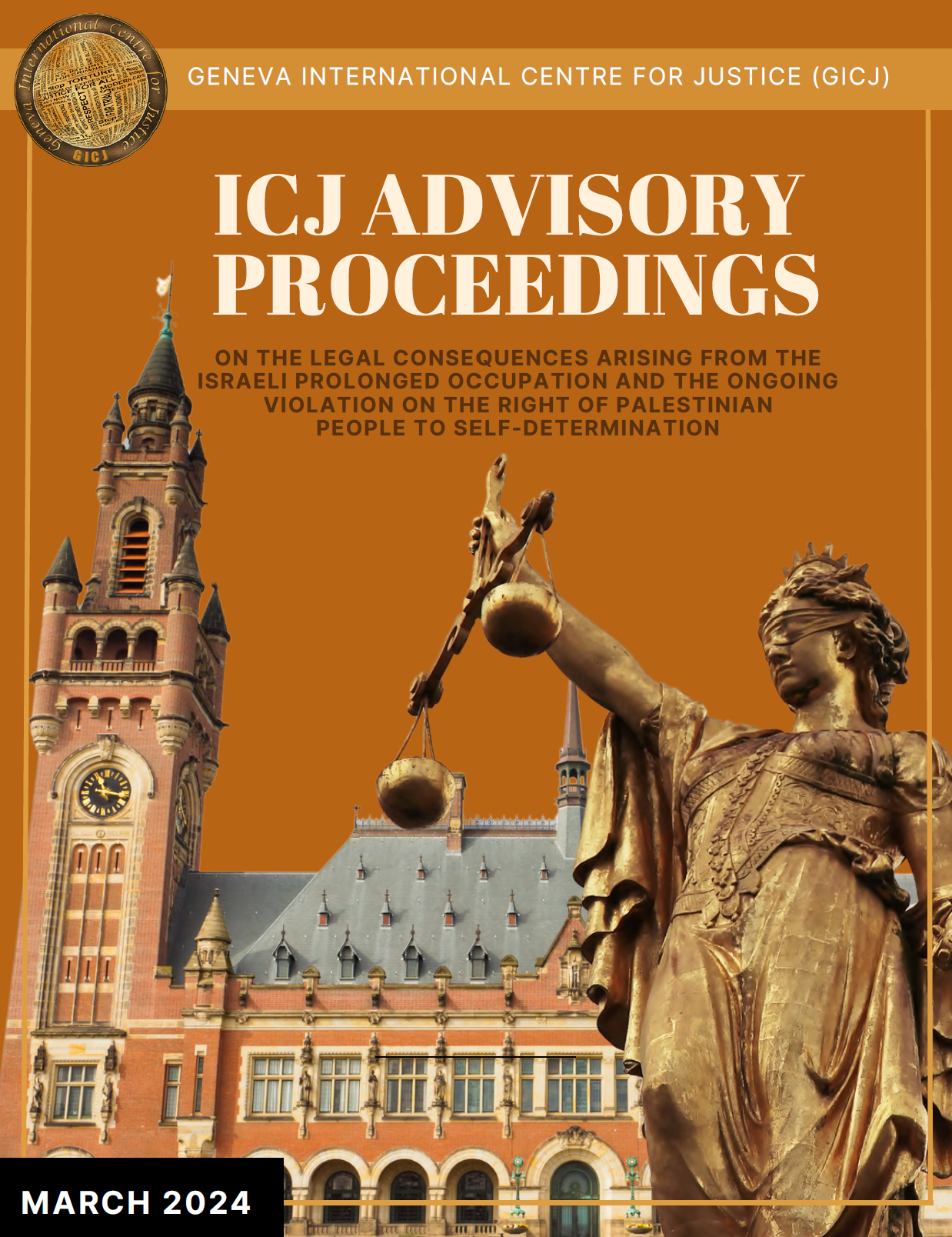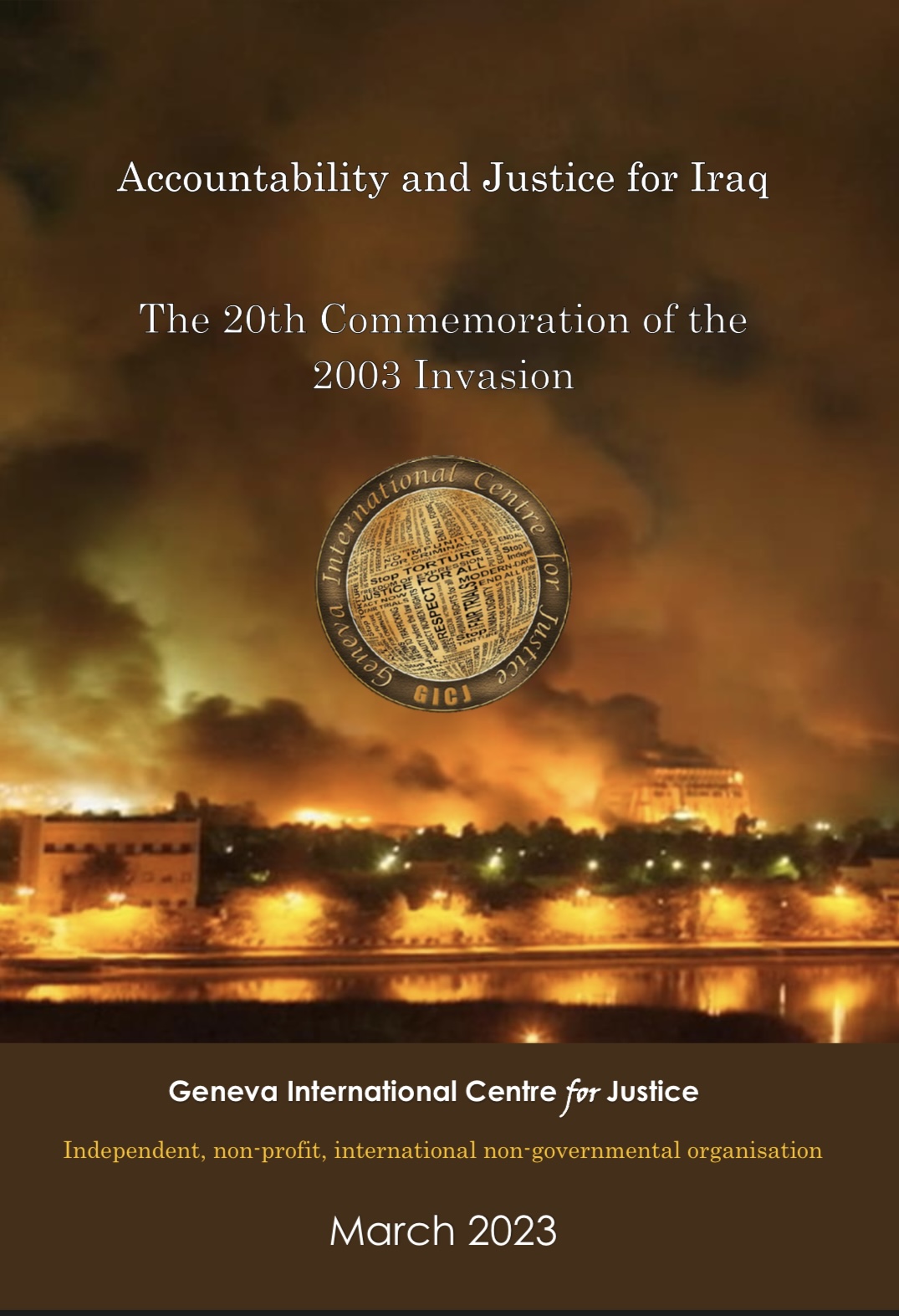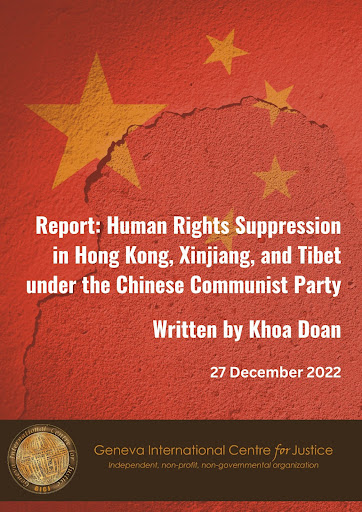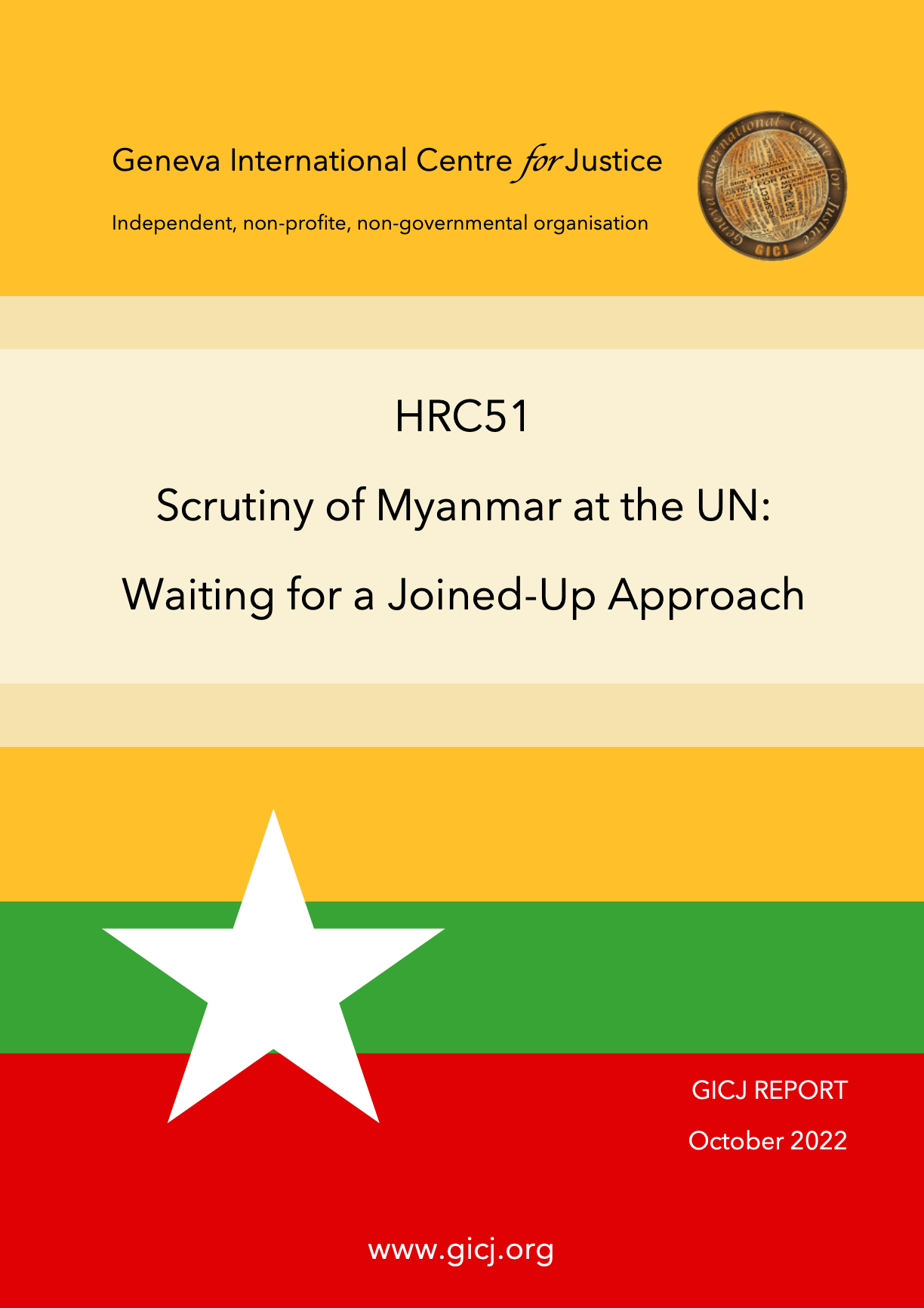The Need for Better Cooperation in the UNECE Region to Achieve the SDGs
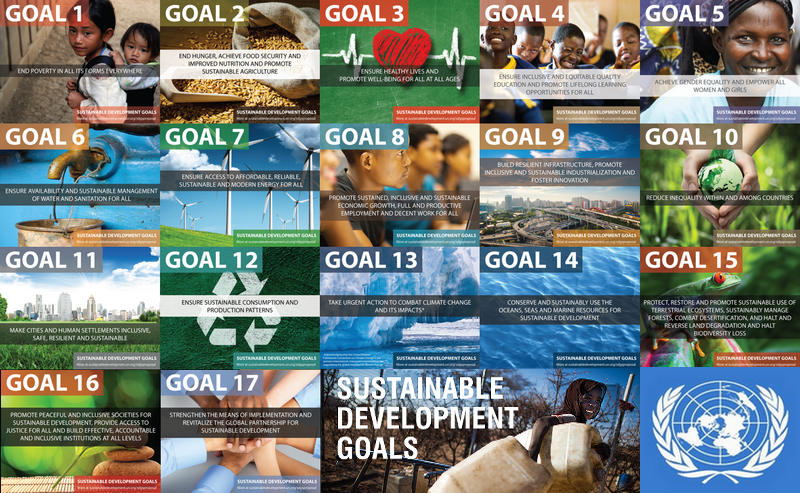
By Mutua K. Kobia
The Sustainable Development Goals (SDGs) are a “universal call to action to end poverty, protect the planet and ensure that all people enjoy peace and prosperity”. They consist of 17 Goals meant to amend the failures and carry forward the successes of the Millennium Development Goals (MDGs). The Goals include new areas such as “climate change, economic inequity, innovation, sustainable consumption, peace and justice” among others1.
Developed in Rio de Janeiro in 2012, the Goals took effect in January 2016. Since, there have been close monitoring of the improvements and challenges. The United Nations Economic Commission for Europe UNECE recently published a Regional Advocacy Paper 2017 (“Building on More Inclusive, Sustainable and Prosperous Societies in Europe and Central Asia) and held a Briefing (“Cross-Sectoral Cooperation for ADG Achievement in Europe and Central Asia”) on the current status of the UNECE region with respect to the SDGs. The areas covered were under the following themes: People - social inclusion, security, and protection; Prosperity - boosting economic development; Planet - Protecting Earth for Future Generations; and Peace and Partnership - Securing people, prosperity and planet through strong governance. Current progress, challenges, and policy recommendations were highlighted in the Paper and Briefing by regional experts.
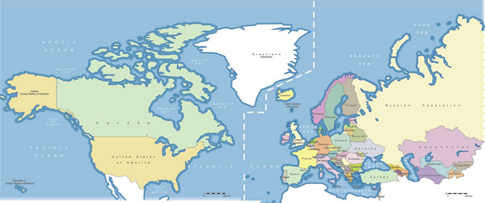
Map of the UNECE Region
Economic Development
Economic development is a cross-cutting issue that needs to be addressed in consideration of the impacts it may have on various related sectors such as health, social protection, agriculture, environment, migration etc. Mr. Heinz Werner Köller, ILO Regional Director for Europe and Central Asia commented that food security, which has direct impacts on hunger and nutrition, needs to be taken into consideration as some regions suffer either from hunger or other dietary ailments such as obesity and malnutrition. Rural areas are more affected due to lack of opportunities and access to services amongst others and they remain areas of prevalent high risk inequality.
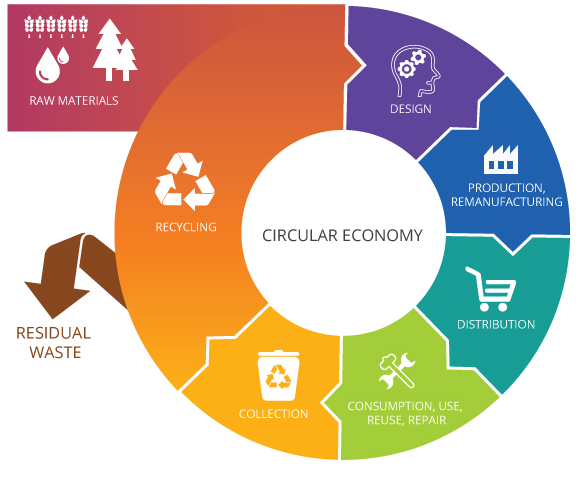 |
| Infographic of a Circular Economy |
In order to boost economic development in the region investment needs to be promoted, agricultural systems established, and policies to improve the lives and conditions of small shareholders and farmers needs to drafted. Additionally, says Mr. Köller, there needs to be a move towards a more circular economy and green industry that focuses on “recycle, re-use, and reduce” ideas and a “do more and better with less” attitude.
According to the Paper, there has been sluggish growth in the labour market and employment affecting wages that in-turn adversely affect vulnerable groups (especially young people). Unpaid care work for women also remains a concern that can be improved by gender-sensitive policies. Enhanced labour market data and labour market policies need to be developed and incentives for a green economy needs to be created.
To achieve these recommendations people also have a part to play. Behaviour and life-style patterns also need to shift towards less consumption and smart choices that help achieve the SDGs. For instance, the ownership and use of cars is still much too high. Reduction in this instance will result in less emissions, which will reduce pollution and improve the health of people and the environment, and additionally, it can help increase the people’s activity, which improves an individual’s health and well-being. Government can nonetheless play a role by bolstering bicycle use and accessibility to green areas. As Mr. Köller put it, the approach to implementation needs to be holistic and comprehensive.
Environment:
“Most air pollution comes from energy use and production” says director of the Clean Air Project, John Walke2.
Air pollution such as smog and soot, emissions and chemicals, pollen and mold, greenhouse gases and other hazardous pollutants (e.g. mercury, lead, dioxins) are toxic, poisonous and detrimental to humans’, animals’, and the planet’s health. Increased mortality rates in the UNECE region caused by air pollution and its side-effects is of major concern as it affects health and budget costs as mentioned by Director of United Nations Environmental Program (UNEP) Regional Office for Europe, Mr. Jan Dusik.
He added that energy consumption in Europe takes up approximately 60% of fossil fuels and 94% in Central Asia (10% of households in some regions is used on energy). Renewable energy in the region is far from where it needs to be regarding the Paris Agreement despite positive developments.
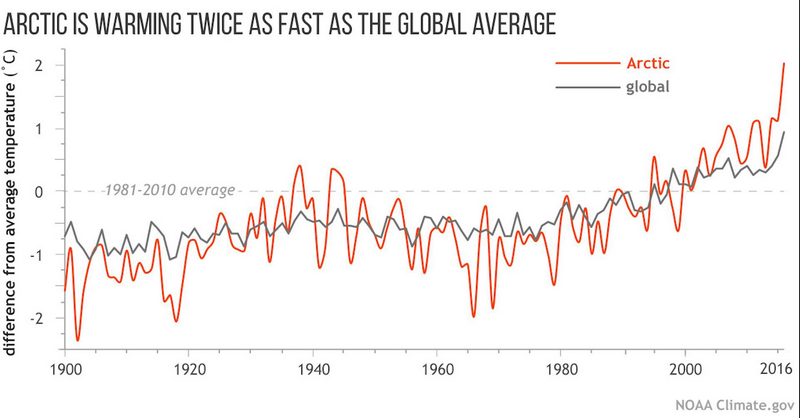 |
| Figure 1. Arctic and global warming averages (°C), 1900 - 2016 |
In this regard, the region is looking at a long-term design of renewable energy policies and the use of new technologies but will also have to address the full costs of energy considering taxation and the social impacts. Energy performance standards also need to be developed in all sectors and quickly move to better energy efficiency.
Greenhouse gases trap the earth’s heat in the atmosphere, which leads to warmer temperatures causing rise in sea-levels and extreme weather among other adverse effects. Global surface temperatures have been consistently rising at a critical rate especially in the past two decades. According to research and data from NASA, the Climatic Research Unit, and the National Oceanic and Atmospheric Administration, 10 of the warmest years have occurred since 2000 and 2016 ranks as the warmest year in the 136-year record matching the annual rise in global temperatures trend3. For the UNECE region this is one indication that significant challenges persist in climate change mitigation despite declining emissions as the region is not even close to the 2 degrees C° limit.
Moreover, current land use systems are unsustainable towards the earth and ecosystems are crucial as the realisation and acknowledgement of the importance of biodiversity has finally come into fruition at the political stage. Access to safe drinking water, over-fishing, and habitat fragmentation must be taken into consideration. Overall nature is not well reflected in the past and current planning.
Mr. Dusik emphasised that the highest importance must be given to the wise use and management of natural resources. Additionally, valuation of natural capital and ecosystem services into national accountability systems needs to be introduced and synergies of existing ecosystems and its related connections, policy instruments, and programmes need to be strengthened. He also accentuated that this field is of critical importance for humanity and the planet. Moreover, we need to balance economic, social, and environmental strategies.
The issue of climate refugees also needs to be discussed. GICJ is particularly concerned about this situation and cautions that this may erupt in dispute and even conflict, as people will seek land and resources, if countries are not well-prepared to accommodate and properly manage climate refugees.

Civil and social inclusion and protection:
Social exclusion - According to the European Commission 120 million people in the EU are “at risk of poverty or social exclusion”. Of particular concern are children, women and the Roma community where only 1 in 2 children attend kindergarten and “only 15% complete secondary school”4. Furthermore, Ms. Alanna Armitage, the UNFPA Director for Europe and Central Asia noted that the UNECE region has seen uneven progress regarding gender equality.
"Discrimination perpetuates the vicious circle of poverty and social exclusion: exclusion from education leads to exclusion from employment. This creates increased poverty, which forces people to live in poor or segregated housing. This affects their educational and job opportunities, and health. And so the circle starts again." FRA Director Morten Kjaerum.
In Europe, the Roma people are some of the most vulnerable people in the region as noted by the European Union Agency for Fundamental Rights (FRA) and Ms. Alanna Armitage, UNFPA Regional Director for Europe and Central Asia in their presentation of the Regional Paper. High levels of discrimination against Roma, for instance with poor housing conditions and residential segregation, persist in Europe and are also subjected to “anti-Roma hate crime and hate speech”5.

Photo 1. Roma residents unwillingly resort to living in shacks due to housing discrimination (Al-Jazeera)
Gender equality – Gender gaps linger in Europe despite legislative achievements such as the Treaty of Rome and gender mainstreaming that have led to the increase in the number of women in the labour market. However, women are still underrepresented in decision-making positions6 and over-represented in lower paid sectors, which constitutes longer work hours and less pay and overall earnings. Maternal mortality in general is low but some groups such as the Roma are still at risk. Additionally, elderly women are at a particular risk in the region particularly with regards to social protection.
Progress and participation remains slow and civil society space is shrinking despite its vital importance. Ms. Armitage also noted that in some countries, there is a “re-traditional” role of women emerging in that their sole place in society is maternal care and being at home. Moreover, harmful practices that adversely affect women remain high.
 |
| Photo 2. Refugees at a camp. (Telegraph) |
Refugees and migrants – with the greatest mass movement of migrants since the Second World War currently underway with over 1 million refugees, approximately half are children7, entering Europe. From resolving root causes to providing humanitarian assistance and aid to properly controlling the flow of refugees and asylum seekers the UNECE has a great deal at hand in terms of managing this phenomenon. The issue of territory and asylum are areas of concern as is violence against women and public health implications regarding refugees, asylum seekers, and migrants according to Ms. Armitage. She added that is calls for a strong need for region wide solutions.
In order to enhance social protection and break the cycles of poverty, pensions and social rights should be linked to informal employment and additional sources of revenue need to be identified as suggested in the Regional Advocacy Paper. additionally, the distribution of opportunities need to be transformed.
Conclusion
GICJ takes special interest in the developments and advances of the SDGs as it relates to human rights and especially regarding the environment, poverty, gender equality, racial discrimination and the migrant and refugee issue among others.
According to the reports and data, it is evident that all issues are inter-linked and cross-cutting. Improvements and best-practices in certain areas should be shared and dispersed with the necessary requirements for effective implementation. All SDGs, from environment to economy to migrants cannot be achieved single-handedly and thus require the close cooperation and collaboration of all governments and all peoples.
1. http://www.undp.org/content/undp/en/home/sustainable-development-goals.html
2. https://www.nrdc.org/stories/air-pollution-everything-you-need-know
3. https://climate.nasa.gov/vital-signs/global-temperature/
4. http://ec.europa.eu/social/main.jsp?catId=751
6. http://ec.europa.eu/justice/gender-equality/
Read online or download the full report by GICJ - "Briefing: Cross-sectoral Cooperation for SDG Achievement in Europe and Central Asia"







